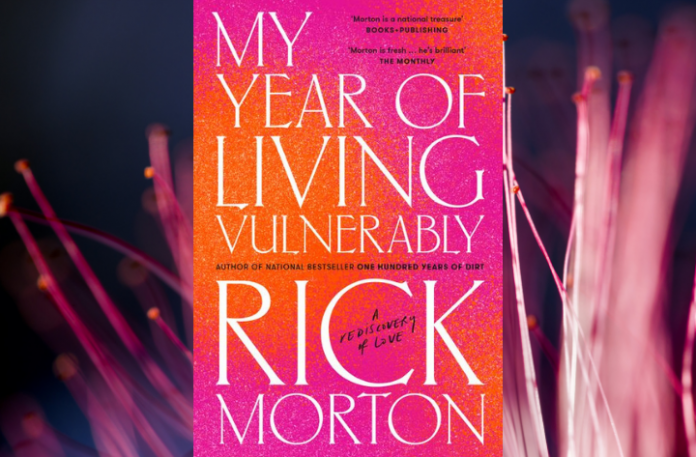My Year of Living Vulnerably
Rick Morton
Harper Collins, $34.99
Two years after his widely acclaimed One Hundred Years of Dirt, journalist Rick Morton has produced another gritty but inspiring work, My Year of Living Vulnerably.
Morton’s first book describes his early childhood on an isolated Queensland station and the trauma that plagued that childhood. As a seven-year-old, the young Rick watches as his older brother Toby suffers horrific burns. The Royal Flying Doctor manages to evacuate Toby, along with mother Deb and newborn baby Lauryn. Rick stays behind on the station, and discovers his father is having an affair with the 19-year-old governess. The devastating sense of loss and loneliness he feels in those weeks is the start of his decades-long trauma.
That – and other – traumas weave their way through Morton’s first book. They reappear in his second, and the reader learns early on that Morton has – after years of seeking answers – been diagnosed with complex Post Traumatic Stress Disorder.
If this leads you to expect this book to be tremendously depressing, please think again. Yes, Morton describes pain and violence. Yet his writing is nothing less than luminous, and occasionally funny. That he survived and pursued a successful career in journalism is testimony to his strong and loving mother, Deb, some close and devoted friends, and (though Morton would probably deny this) his own perseverance and strength of character.
Like One Hundred Years of Dirt, My Year of Living Vulnerably shifts between Morton’s memoir and related topics. Sadly, for the author, just as he began researching this book, Covid-19 rapidly closed many doors. Still, he manages to visit New York (where he ruminates on homelessness) and Japan (where he is entranced by the PARO therapeutic robot, an adorable robotic harp seal which has brought joy to thousands of lonely elderly people).
Morton explores the idea of intergenerational trauma; his family is a compelling case study. His father was cold and emotionally unavailable, but his paternal grandfather was a brute; Morton believes his forbears were likely perpetrators of frontier violence. (The author is frank about his own struggles with mental health, and his brother Toby had major struggles with ice addiction.)
This is a beautifully written book. Writing about forgiveness, Morton describes it as “a garden in bloom. You are never guaranteed the beauty of those flowers, though your best chance is and has always been to tend to them nevertheless.”
Having read Morton’s first book prior to this one, I found My Year of Living Vulnerably a perfect companion piece; I finished One Hundred Years of Dirt wanting to know more. While the two complement each other beautifully, one can still appreciate this book on its own.
_______________
books@ssh.com.au





